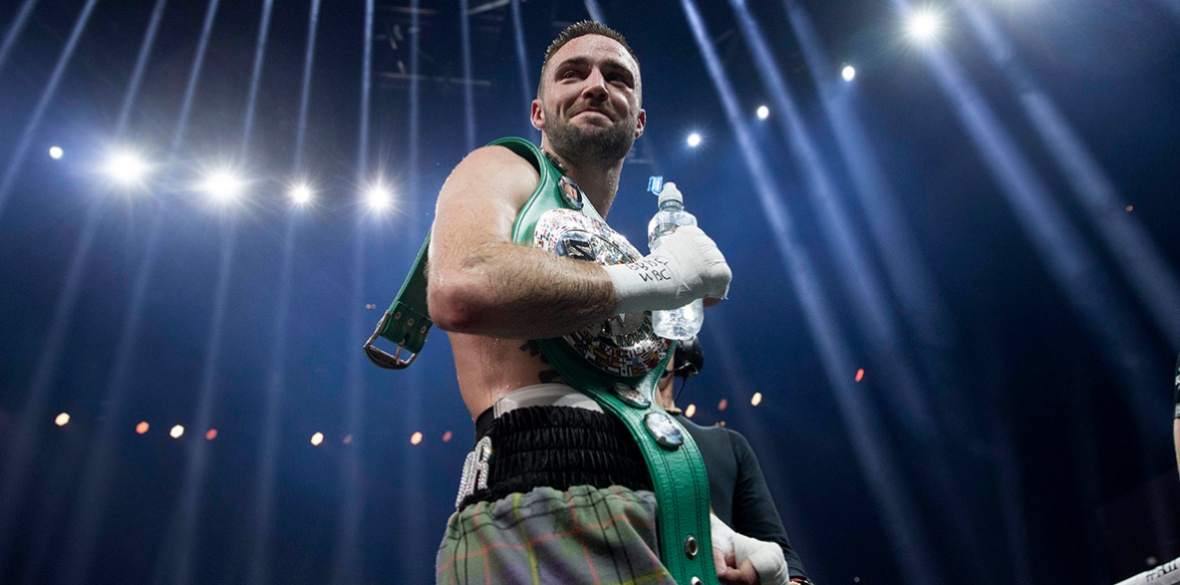This is the last article you can read this month
You can read more article this month
You can read more articles this month
Sorry your limit is up for this month
Reset on:
Please help support the Morning Star by subscribing here
THE importance of momentum in an athlete or sportsperson’s career can’t be overstated. The sense of forward motion while training for an event, competition or tournament is intrinsic to their sense of purpose and identity, living as they do in a state of permanent striving for excellence from one day to the next.
For a fighter, momentum takes on even greater importance, in that the mindset required to step into a boxing ring to trade blows in sparring on a regular basis can only be sustained by the act of doing, reinforcing the mental fortitude required to do so with an upcoming fight consuming every waking thought.
But now all that has been shattered with the onset of a global pandemic, turning the world upside down and inside out. Boxers have in consequence been cut adrift from the gym and the daily grind and structure that normally dominates their existence, pitched now into a void with as yet no end in sight.
Scotland’s unified super lightweight champion, Josh Taylor, is a case in point. Having just changed trainers and signed with Bob Arum’s Top Rank in the US, he was about to enter the next chapter of his already storied career.
His first fight with his new team was meant to have taken place on May 2 against Thailand’s Apinun Khongsong in Glasgow.
Taylor had flown out to Vegas with new trainer Ben Davison at the start of April to prepare for the fight alongside his new stablemate Billy Joe Saunders — himself getting ready for a mega-fight against Canelo Alvarez in Vegas on the same date.
Now Taylor finds himself back in Scotland not knowing when he’ll be in action again, grappling with the uncertainty of prolonged inaction after years spent knowing only the certainty of progress. And his is a predicament shared by an untold number of fighters operating at all levels.
At least for Taylor, a fighter who succeeded in garnering life changing purses of late, financial pressures do not enter into the equation. Others — indeed the vast majority who ply their trade in the squared circle — are not so fortunate, with the enforced cancellation of upcoming fights potentially ruinous.
For the likes of Tyson Fury, meanwhile, a man with a well-publicised history of mental illness for whom boxing is as much therapy as career, the challenge of maintaining balance and a sense of meaning during this unprecedented time is even greater.
If social media is anything to go by, however, the current WBC and Ring Magazine champion is coping admirably. Fury has been treating his army of fans to daily workouts on Instagram in the company of his wife, Paris, spreading a message of “positivity” to a world that could certainly do with some.
Regardless, the hard truth is that without a vaccine for coronavirus there is no certainty of the old reality of packed-out shows and arenas coming back anytime soon.
Which is why Eddie Hearn’s new initiative is so bold, one that will be welcomed by many and scorned by some.
Hearn intends to put on a series of shows on the ostentatious grounds of his father’s promotional company’s Matchroom Sport headquarters in Essex.
Beginning on July 15, these Fight Camp shows will consist of live fights and may include Dillian Whyte’s heavyweight clash with Alexander Povetkin for the WBC interim title.
In terms of safety precautions there will be no spectators present, only the fighters and their teams along with officials and the usual media contingent.
Hearn also intends to take over a local hotel for the purposes of housing and, if required, the quarantining of any of the fighters, members of their teams, officials or members of the press should any test positive for coronavirus upon arrival.
You can’t fault Hearn for his can-do attitude, but nonetheless it’s an idea pregnant with risk.
As someone who’s had the experience of being ringside at fights in empty arenas while covering Ricky Burns back in the day, turning up early at the start of the undercard before they filled up, I can vouch for the fact that the sound of punches echoing off flesh and bone is like listening to a car crash.
The question of how fighters will respond to such a surreal scenario on the night will be interesting to see answered. Some may embrace the opportunity to get back in the ring and will perform as normal, while others may find it hard to do so beyond the level of enhanced sparring.
As I say, though, it’s a bold initiative and you have to credit Hearn for taking the risk.
Sport in general has been placed on pause over the long weeks of lockdown, and its absence is a reminder of how intrinsic it is to our cultural life.
But an intrinsic part of sport is the passion generated by a live crowd. The thought of things not returning to that normality for a considerable period of time is depressing. And who knows if things will ever return to normal?
It was the flamboyant and notorious Don King who, in describing the two years he spent in prison as a young street hood, famously said: “I didn’t serve time. Time served me.”
Just such an attitude is crucial for everybody right now, and arguably even more so for athletes and fighters. For in the last analysis, we will either navigate and come out of this lockdown as philosophers or as pallbearers at the funeral of our own sanity.
As the man said, “You can’t avoid the waves, but you can learn how to surf.”
John’s book — This Boxing Game: A Journey in Beautiful Brutality — is currently available at all major booksellers.











